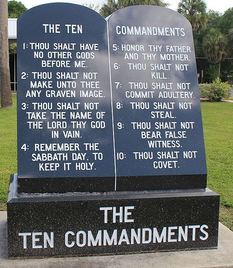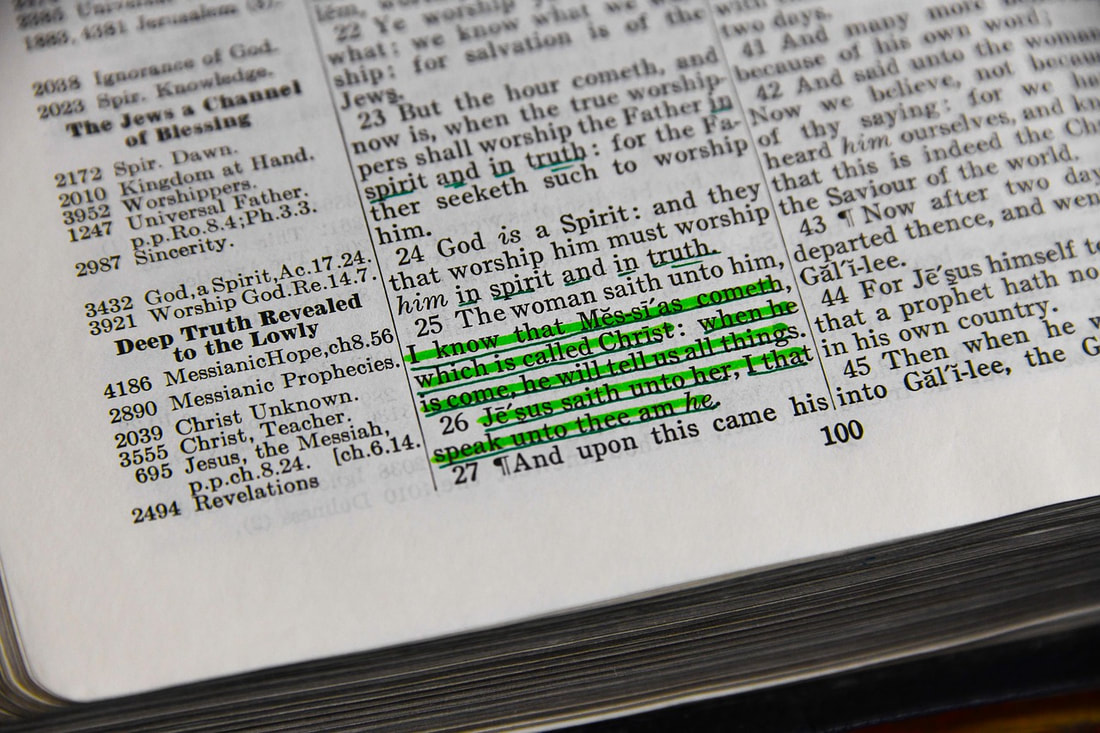|
One of the tests that I use for determining the validity of a biblical text or translation is the test of inerrancy. This is one of the primary reasons that I prefer the Textus Receptus over the critical text. If the Word of God is inerrant, then the critical text cannot be the pure Word of God, for it contains many errors that are overlooked simply because the compilers of that text do not hold to the doctrine of inerrancy.
0 Comments
What is it that makes an individual a Christian? This simple question has been asked and answered alternatively for nearly two millennia. How one answers this question will have profound implications in his life, his ministry and his future estate. It is imperative that every individual come to a realization of the minimal beliefs with which he must agree in order to obtain salvation.
Not too long ago, I taught a Sunday School series on Using the Law Lawfully. In that series, we analyzed all 613 of the laws in the Old Testament to determine which of them still applied to modern Gentile believers. One of the laws that we looked at was the prohibition against crossdressing found in Deuteronomy 22:5, and I think that we established a pretty good understanding of that law and how it applies to us today. Here is the outline from that lesson:
Sir William Blackstone is often praised for laying the groundwork for American jurisprudence with his Commentaries on the Laws of England. Blackstone's Commentaries were one of the most widely read books in the colonies, and his views of the laws of England were often incorporated into the laws of America. One portion of Blackstone's Commentaries that has largely been forgotten by modern legal scholars but which played a significant role in forming the thought of founding fathers like James Wilson was Blackstone's answer to the question of where laws come from. What follows is a condensed version of Blackstone's somewhat loquacious answer to that question.
 Often, when Christians think about loving God, they think of spending sweet time with Him in their devotions or worshipping Him through song in their church. Occasionally, someone will remember Christ’s statement, “If ye love me, keep my commandments.” But did you know that there are no less than 18 verses of Scripture which directly correlate love with obedience? This correlation has many applications in our walk with the Lord as well as in other areas like parenting and leadership. There is much that could be said about this correlation, but let me just present the list itself, and see if any interesting conversations develop:
Those given to Jesus by the Father were not the Calvinist elect, but rather they were the ones who had already believed the Old Testament and thus were followers of the Father before they met the Son. The Calvinist that I was debating introduced John 10:26 as an argument against my view of John 6, and I’d like to share my response with you as well.
 I was listening to Dr. James White’s podcast the other day and heard him defending the Calvinist TULIP and criticizing other floral acrostics attempting to provide a contrasting view of salvation. I’ve always disagreed with the doctrines of Calvinism, but I’ve never attempted to organize my disagreement into a simple acrostic which could stand toe-to-toe with the TULIP. That is, I’ve never done so before now. While listening to Dr. White’s podcast, I came up with a simple acrostic that I think defeats the TULIP with ease.  The idea that the lost will suffer eternal punishment has often been questioned by Christians who doubt that a God of mercy would condone such cruelty. Instead, they often come up with other ideas about the punishment of the lost such as the idea that they will simply be annihilated or that they will only suffer for a period of time before being given another opportunity to turn to God. There are several logical problems with attempting to reconcile either of these views to the accounts of Scripture, but in order to see that, we must actually know what the Scripture says about the punishment of the lost. Unfortunately, I have discovered that very few Christians have ever actually studied this aspect of God’s Word.  photo by: o5com photo by: o5com Over the years, I have had at least as many disagreements with other Christians as I have had with non-Christians, and it is disappointing to look back and see how often those disagreements have become disagreeable. I've been cursed, ridiculed, smeared and dismissed in far more Christian forums than in non-Christian forums. In fact, I was recently banned from two apologetics associations because my personal view of the Scriptural teaching on a particular issue was more conservative than they were willing to contemplate.  In the book The Faiths of the Founding Fathers, Christian historian David Holmes made the following statement about John Adams: Like many of his contemporaries, he brought the religion in which he was raised into the court of his reason and common sense and judged it by what he found ... "Let the human mind loose," Adams once wrote in an outburst of Enlightenment passion. "It must be loosed; it will be loose. Superstition and despotism cannot confine it." He followed these words with the assertion that Christianity would surely triumph if the human mind were loosed. This statement indicates that Adams belongs somewhere in the category of Unitarian Christian or Christian Deist. |
Bill Fortenberry is a Christian philosopher and historian in Birmingham, AL. Bill's work has been cited in several legal journals, and he has appeared as a guest on shows including The Dr. Gina Show, The Michael Hart Show, and Real Science Radio.
Contact Us if you would like to schedule Bill to speak to your church, group, or club. "Give instruction to a wise man, and he will be yet wiser: teach a just man, and he will increase in learning." (Proverbs 9:9)
Search
Topics
All
Archives
June 2024
|







 RSS Feed
RSS Feed